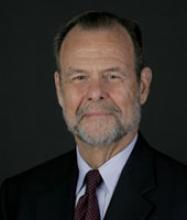What Is It
What does it mean to be normal? And abnormal? Who gets to decide, and what are the repercussions? When do we applaud deviations from the norm, when do we condemn them, and why? Ken and John take a look at the uses and abuses of making judgments about normality with Charles Scott from Vanderbilt University, author of Living With Indifference.
Listening Notes
What is normal? Why is what is normal to one person abnormal to another? Are standards of normality culturally relevant? Who decides what is normal? These questions guide this edition of Philosophy Talk, with guest Charles E. Scott, Professor of Philosophy at Vanderbilt University.
John and Ken open the discussion by distinguishing between the meaning of normal in a statistical sense and in a normative sense. Statistically, normal is the average or median of a set of data. In a normative sense, norms are the standards by which our behavior is measured, such as morality and reason. Ken suggests that what people generally do becomes what they ought to do; in other words, statistically normal behavior becomes the social norm for behavior. Alternatively the common habits and strategies that successful people use (those on the leading edge of the statistical bell curve) often become social norms to which others are expected to conform.
Professor Charles Scott joins the conversation and begins by tracing the origins of the word normal. The ancient Greek roots of normal mean well-known. Normal also used to mean a rule, such as a carpenter’s square. In English, normal was first used to describe the conjugation of regular and irregular verbs. How did normal attain its contemporary usage? Scott questions the value of normalcy, particularly in religion, mental health, and morality—why is normal better than abnormal? Scott argues the positive value of normalcy is that norms provide social coherence and organization. The negative side of normalcy is the marginalization of those that don’t fit within the norm.
Callers chime in, pointing out that artists are more creative because they operate outside of the normal, mainstream culture. Scott suggests that creative tension moves society along and transformations in social norms occur because of divergences from and tensions with existing norms. Societal change occurs when options for behavior are presented that deviate from or interrupt the authority of normal standards. Another caller asks whether normalcy is context dependent, citing the changing treatment of blacks and homosexuals in America. This context specific definition of normality indicates the relativity and changeability of our notions of normal.
- Roving Philosophical Reporter (Seek to 6:09): Reporter Jill Replogle polls the public on normalcy, asking what is normal, who decides, is normal good, and is normalcy something we should strive for?
- 60-Second Philosopher (Seek to 48:53): Ian Sholes discusses normalcy and prevalence of psychological disorders and then turns to historical examples of normalcy during Warren G. Harding’s “Return to Normalcy” presidency.




Comments (1)
jessicavi
Tuesday, December 5, 2023 -- 1:27 AM
I am interested in acquiringI am interested in acquiring further knowledge about this matter due to its captivating nature Snake game.